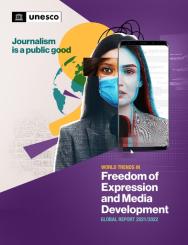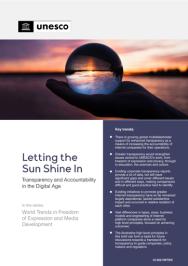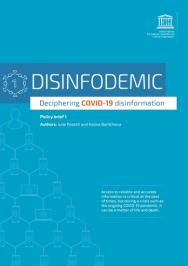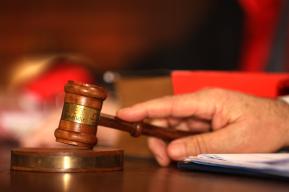
Freedom of Expression Online
UNESCO works to promote freedom of expression online at a time when the digital ecosystem offers new opportunities but also multiplies challenges for freedom of expression.
Guided by the Windhoek +30 Declaration on information as a public good, we advocate for greater transparency and accountability of digital platforms , including to counter mis- and disinformation and hate speech.
We empower people with media and information literacy skills, support media viability and work to build societal resilience to harmful content online through a range of partnerships and collaborations. We support trustworthy, independent media and work with journalists to address information needs in times of emergencies.
We also train judicial and law enforcement actors on international standards on freedom of expression to tackle these challenges with a human rights-based approach, and advocate for a digital ecosystem based on the R.O.A.M.-X principles (human rights-based, open, accessible, and multi-stakeholder).
Our Actions
How to address online #HateSpeech with a human rights-based approach?
Some people use messages that violate other people's rights to dignity, equality and safety. When does free speech become criminal 'hate speech' and how do we best respond to it? Navigating that fine line isn't easy. But, in the interests of protecting human rights for all we can - and must- work together more intensively to address the problem.

More videos on Freedom of Expression Online
Freedom of Expression and Safety of Journalists Online Courses

Our Publications





ISBN : 978-92-3-100403-2
Collation : 346 pages


Documents
With funding from the UNESCO International Programme for the Development of Communication (IPDC).








